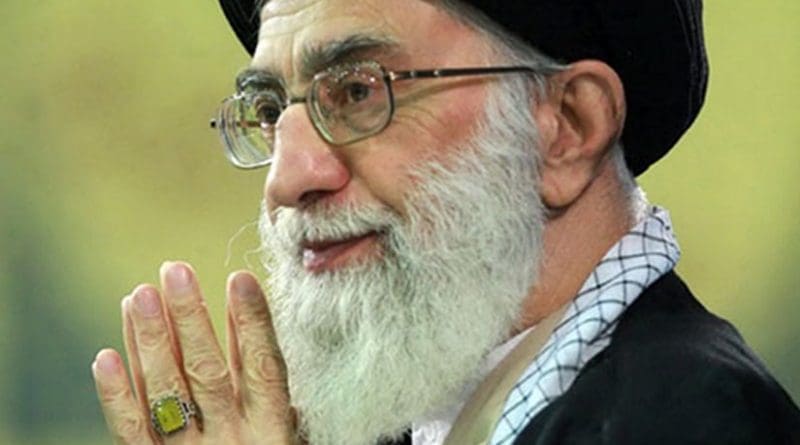Iran’s Ayatollahs Cannot Evade Rising Tide Of Opposition – OpEd
It was forty years ago almost this time of the year. It was right after the end of Nowruz holiday on the occasion of the Iranian New Year and I was leaving our high school in a major street in central Tehran near Tehran University. As I got closer to the gates of the University, sounds of chants attracted my attention. I will never forget the first time that I heard “Down with the Shah” chant.
The anti-government protests had begun a few months ago in some other cities including Qum and Tabriz. But things looked normal in Tehran. But as history quickly showed, was only the surface. My family was quiet well off living in good neighborhood north of capital but we had relatives living in south Tehran and cities around the country so visiting them had me aware that there are people living in not desirable conditions, and I knew that there was a secret police “SAVAK” which was despised by everyone including my father who had once been summoned and cautioned for speaking against one of the regime’s officials at a family gathering.
To me who had watched the Shah’s state dinner for President Jimmy Carter on national TV on December 31, 1977 and hearing President Carter’s remarks in praising Shah calling Iran “an island of stability in one of the more troubled areas of the world,” it was very interesting and asking myself are these demonstrations and chants signs of what they call an island of stability, and those differences in living conditions are normal?
I left Iran the following autumn and went to the UK, but kept following the events closely every day. And the rest was history. On February 11, 1979 the Shah who used to say “monarchy, is the blessing of the divine which has been entrusted to him and his family” was toppled and with that the monarchy in Iran was buried forever.
And the West was totally lost. I remember vividly how the UK Foreign Office to the very last weeks in total delusion thought the Shah can weather the storm and save the peacock throne.
Tragically, a genuine uprising against a corrupt regime was derailed by a despot, Khomeini who exploited lack of democratic process and the people’s religious sentiments deceived the Iranian people who demanded freedom and democracy, and established a ruthless theocracy in Iran. And so far as the international community was concerned, despite heavy presence in Iran totally misread the Iranian people’s sentiments and desire for freedom and changed and did not see the storm that was coming.
The ayatollah’s rule brought devastation and misery for the Iranian people and made this great civilization and international pariah.
Now fast forward forty years. This spring there is a smell of another major change in Iran in the air.
Iran was scene of major anti-government protests in December and January that pervaded throughout the country and shook the regime to its core. From what I saw this also took the pundits in the West by surprise.
The protesters clearly expressed their desire for a regime change by slogans like “Down with Khamenei”, And this time around very much similar to 1978, the youth and the women played a pivotal role.
Ali Khamenei the regime’s supreme leader, in a televised speech in the holy city of Qom on January 9, said that the protests were organized by the People’s Mojahedin organization of Iran (PMOI/MEK).
The MEK has been the prime victim of Tehran’s rule by iron feast for the past four decades. It is the key component of the National Council of Resistance of Iran coalition led by Maryam Rajavi who has articulated her platform for a future Iran in a 10 point plan.
And this is all happening at a time when there is a big debate in Washington on Iran policy on whether to adopt a firm policy of seek complacence from the ayatollahs. This has reached a new peak upon the appointment of John Bolton as the new National security Advisor of the US President.
The West should have learned its lessons and not be caught in its delusions. The ayatollahs are besieged with crisis. There is growing unrest. Even the most apolitical strata of the Iranian society such as the farmers have started to stage protests and strikes. Despite the nuclear agreement the Iranian economy is faltering. Corruption is rampant and Tehran seems incapable of distancing itself from sponsoring terror and fomenting unrest and havoc in the region. They are predicates to one conclusion: The status quo is untenable and Iran is moving toward big change fast.
This time the West should side with the Iranians in their call for freedom and think of what might have been thought unthinkable the previous Nowruz, an Iran without the ayatollahs at power.
*Nasser Razii, an Iranian-born human rights and political activist based in London. His CV includes working with Members of Parliament, media and think tanks on behalf of the Iranian opposition and community. He has followed the developments in the Middle East for the past three decades with a special focus on Iranian opposition, human rights, terrorism and Islamic extremism.

